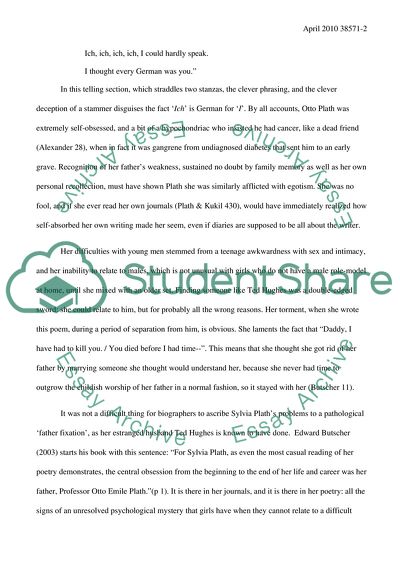Cite this document
(“Not Found (#404) - StudentShare”, n.d.)
Not Found (#404) - StudentShare. Retrieved from https://studentshare.org/literature/1737209-sylvia-plath-an-exploration-of-daddy
Not Found (#404) - StudentShare. Retrieved from https://studentshare.org/literature/1737209-sylvia-plath-an-exploration-of-daddy
(Not Found (#404) - StudentShare)
Not Found (#404) - StudentShare. https://studentshare.org/literature/1737209-sylvia-plath-an-exploration-of-daddy.
Not Found (#404) - StudentShare. https://studentshare.org/literature/1737209-sylvia-plath-an-exploration-of-daddy.
“Not Found (#404) - StudentShare”, n.d. https://studentshare.org/literature/1737209-sylvia-plath-an-exploration-of-daddy.


